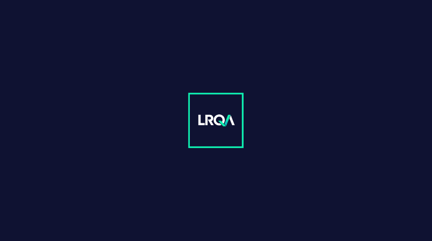As global supply chains become increasingly complex and the demand for ethical practices rises, SEDEX has introduced a new version of its SMETA (Sedex Members Ethical Trade Audit) methodology.
We spoke with Sefika Gulec, LRQA’s Scheme Technical Manager and SMETA expert, to delve into the significant changes in this update and what they mean for the over 60,000 businesses worldwide that depend on SMETA audits.
With recent data showing that 76.6% of companies faced supply chain disruptions last year, the importance of a robust and adaptive audit framework cannot be overstated. The SMETA 7.0 update represents a significant evolution in ethical trade audits and introduces key enhancements designed to help businesses meet the ever-increasing demands for transparency, accountability, and sustainability.
Key Changes in SMETA 7.0 – what you need to know
- Introduction of the Management Systems Assessment (MSA): SMETA 7.0 includes a new Management Systems Assessment, offering a comprehensive review of a site’s policies, procedures, and practices to ensure alignment with SMETA standards. This enhancement is specifically designed to help businesses identify and mitigate potential risks more effectively by assessing the maturity and effectiveness of their management systems. The MSA replaces the previous "observations" category, providing a more structured approach to evaluating how well a site's systems can prevent non-compliance
- Collaborative Action Required category: A new finding category, "Collaborative Action Required" (CAR), has been introduced to address complex issues that cannot be resolved by the audited party alone. This category encourages closer cooperation between buyers, suppliers, and other stakeholders to tackle challenges that may require long-term remediation efforts and involve multiple parties. Unlike traditional non-conformances, CAR findings do not have a fixed closure date, reflecting the complexity and need for sustained collaboration to resolve these issues.
- Enhanced environmental and business ethics assessments: The 4-pillar audit has been upgraded with more rigorous assessments of environmental practices and business ethics. These enhancements align with the growing global emphasis on sustainability and ethical business conduct, ensuring that businesses meet higher standards in responsible sourcing. This is crucial for companies aiming to stay ahead of regulatory demands and stakeholder expectations.
- Digital integration for real-time reporting: SMETA 7.0 leverages advanced digital tools to streamline data collection and enable real-time reporting. This integration enhances the efficiency of the audit process and ensures that businesses can quickly adapt to any changes in compliance requirements. The use of digital platforms is a key component of maintaining continuous assurance across complex supply chains.
- Comprehensive Auditor Training: To ensure the effective implementation of SMETA 7.0, Sedex has rolled out an extensive training programme for auditors, including 16 hours of live training and updated modules in the Sedex Auditor Academy. This training is mandatory for all auditors before they can conduct SMETA 7.0 audits, ensuring consistency and quality across all assessments.
The launch of SMETA 7.0 is a pivotal moment for businesses committed to responsible sourcing. With the introduction of new tools like the Management Systems Assessment and stricter standards for environmental and business ethics, we're empowering companies to elevate their responsible sourcing practices and exceed global expectations. For companies dedicated to ethical practices, this update is a transformative step toward achieving long-term compliance and operational excellence.
How LRQA Can Help with SMETA 7.0 Compliance
As a trusted global assurance partner, LRQA provides businesses with the expertise and tools to navigate the changes introduced in SMETA 7.0. From ESG insights to real-time reporting solutions, LRQA ensures clients achieve resilient and ethical supply chains while meeting the rigorous standards of the SMETA audit framework.
Our Key SMETA Audit Services
- Corrective Action Plan Management: Supporting continuous improvement and enhanced performance across supply chains.
- Management Systems Assessment (MSA): Evaluating the maturity of management systems to mitigate compliance risks.
- Trainings: Expanding knowledge through comprehensive courses via the EiQ Digital Learning library.
Learn How SMETA 7.0 Can Transform Your Sourcing Practices


